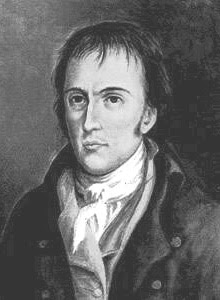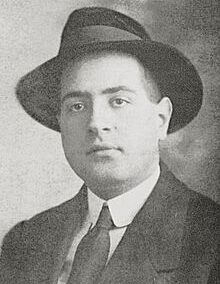Deluxe One Bedroom Penthouse with Terrace
2 Penthouses between 55 m2 and 60 m2, located on the 3rd floor, for two people,
with a living room, dining area and fully equipped kitchen
Penthouse Bocage
(303)
Apartments
Wi-Fi
2 Adults
TV
Who was Bocage

Manuel Maria Barbosa du Bocage (Setúbal, 15 September 1765 - 1805) Bocage was the most important Portuguese poet of the 18th century.
In 1783 Bocage enlisted in the Navy, embarking for India three years later, where he was promoted to lieutenant and sent to Damão, deserting soon after.
When he fled the Navy, he lived in Macau and from there he returned to his country in 1790. On his return to Lisbon, he fell in love with his brother's wife and gave himself up to the bohemian. At that time, he wrote verses about love disillusionment and financial difficulties.
Considered as the great poet of Portugal's Arcadism, Bocage was arrested when he released the poem Carta a Marília, whose opening verse is "Dreadful Illusion of Eternity". Accused of impiety and anti-monarchism, he is condemned by the Inquisition and spends months in the dungeon of Limoeiro, from where he left for the Oratorians' convent, until he conformed to the religious and moral conventions of the time. Upon returning to freedom, Bocage led a life dedicated to the translation of Latin and French authors.
Bocage left fame as a satirical poet and, over time, his name became synonymous with a spicy and obscene storyteller. However, the creator also produced the most beautiful lyrics, to the point of being placed alongside figures such as Camões and Antero de Quental.
Bocage (1765-1805)
Penthouse Mário de Sá Carneiro
(305)
Apartments
Wi-Fi
2 Adults
TV
Who was Mário de Sá-Carneiro

Mário de Sá-Carneiro (1890-1916) was a Portuguese poet, short story writer and fiction writer, one of the greatest exponents of modernism in Portugal and one of the most reputable members of the Geração d'Orpheu.
His work is confused with his life. In his verses, he expresses a permanent anguish, an endless search for an 'identity' never found, because, as stated in his poetry, he “was a labyrinth” and lost himself, in the impossibility of “finding oneself”, to understand yourself.
Always claiming that he could not adapt to the world and having lived in a deep loneliness, Sá-Carneiro committed suicide at the age of 26, leaving poems, tales and novels with different characteristics, ranging from Surrealism, going through Decadentism and also including Futurism.
Mário de Sá-Carneiro's work occupies a prominent place in Portuguese literature, especially in poetry. He is a poet in all fields, even in theater and prose. It reveals your inadequacy to the world and the constant search for your own self.
Mário de Sá Carneiro (1890-1916)

